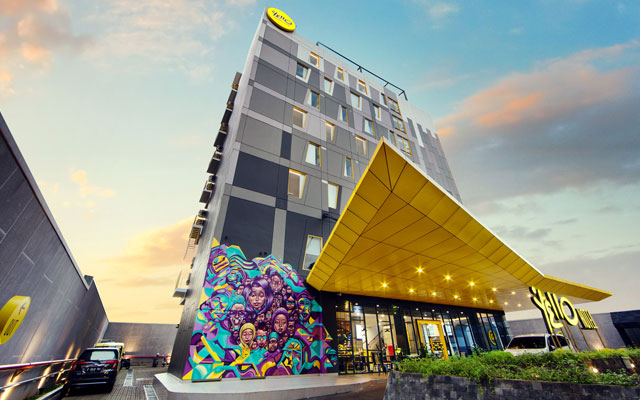Indonesia’s growing midscale hotel segment is fusing lifestyle elements and customisation into their offerings to meet consumers’ demand for experiential travel.
Midscale hotel operators in Indonesia are integrating more lifestyle elements into their properties as they compete to elevate the guest experience. Standard rooms and basic amenities are no longer sufficient for hotels to edge out the competition.
Speaking at the 7th Tourism, Hotel Investment & Networking Conference in Bali in September, Armand Steinmeyer, director of business development and investment, Tauzia International Management, said: “In the past, midscale hotels started out simple but the proliferation of the middle class and their varying needs and experiences progressively changed (the way hotels operate).

“We have, for example, seen the growth of meetings and incentives or people celebrating birthdays in hotels that we didn’t 10 to 15 years ago.”
He noted that while domestic travellers used to be contented with simple homestays, more are now opting for professionally-run properties.
Another panellist, David Wray, senior vice president, acquisitions and business development, Southeast Asia and Pacific Rim at Wyndham, also observed increasing integration of lifestyle elements in hotels amid growing demand for midscale hotels in South-east Asia, including Indonesia, and traveller interest in experiences.
Nathalia Wilson, director of development, South-east Asia and Korea, at InterContinental Hotels Group, agreed: “There is quite an interest in lifestyle (experiences) in the midscale segment in Indonesia. It does not only appeal to the millennials, but also those wanting a hotel stay where they can relate to the neighbourhood in terms of arts and culture. People want to relate more to the places where they stay and the experiences they get, and engage more with the community.”
Steinmeyer said: “In the past we saw more standardised hotels, but the future of the hotel is moving towards guest experiences.”
For example, Tauzia’s Yello Hotels lifestyle brand, according to Steinmeyer, is customised to fit local preferences.
“While the room sizes and the brand’s core identity as urban art and technology is the same, a Yello Hotel in Jakarta is not the same as the one in Manado, for example, to adapt more to the kind of experiences guests want in that city. How we manage the building has to change and evolve to meet the expectations of the guests in that area.”
He said that a bar may be de rigueur in a Jakarta hotel, but less so in Indonesia’s secondary destinations.
Wilson also stressed the need to adjust brand standards to make them more relevant to the destination.
“A lot of the hotel owners we are working with are (first-time) owners. We do come up with the number of room keys that would be feasible but room sizes may differ from one location to another (due to land size or market needs),” she said.
“For many hotels outside of Bali, the government-run business event sector is an important sector, so some of the facilities at (the hotels) need to cater for that.”
“I think that it’s also critical to note the type of hotels and what the trends are (in a destination),” added Wilson.
“Some of our hotels’ features, which may be our brand standards initiated in the US or Europe, may have to differ slightly for products that are in Indonesia where we see the MICE business coming from the government. Also, the wedding business is very important for a lot of hotels in secondary cities.”




















